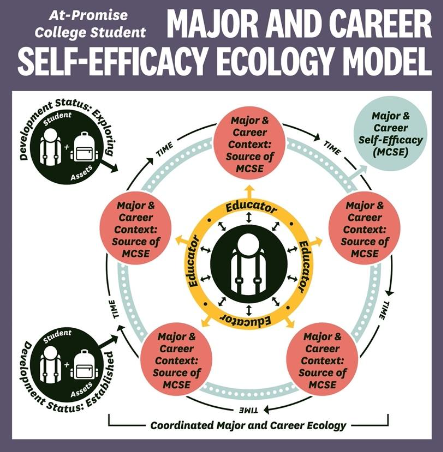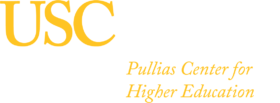Higher education is costly — and it also requires a great deal of time and sacrifice for many students. College educators owe it to students to ensure that they are getting the support they need to make this investment well-worth it.
More needs to be done to support students’ career development during the college years to fully realize the promise of higher education. As part of the Promoting At-Promise Student Success (PASS) study, my colleagues and I have identified one promising model of career development support that rises to this challenge.
Often it seems that opportunities for career development and preparation are relegated to the final years of college and confined to isolated and often under-resourced campus career centers, a career day, or a short advising meeting. This, despite the increased scrutiny higher education faces and the importance of career preparation and outcomes to college-goers. There remains much to be desired around career support in college settings and the connection between a college education and the skills, knowledge, and preparation for a future career often remain unclear to many college graduates.
Through the longitudinal PASS study, scholars identified a promising approach to college major and career support that facilitates students’ career development and effectively increases their college success: the At-Promise Major and Career Self-Efficacy Ecology Model. This model is a new approach to career development support that deviates from the typical focus of career support focused in the final years of college only, the one-off career events like career fairs, and the rigid, linear approach to choosing a career that often informs college career advising. Instead, this effective approach to major and career development is:
- Developmental and Asset-Based: Educators proactively reach out and work with the student early on in their college career to identify and understand the assets, strengths, and experiences that they bring with them to college and then collaborate with the student to build upon those in pursuit of identifying and preparing for a future career. For instance, an educator may meet with a student and ask probing questions to better understand their initial college and career goals, what past experiences have informed what they think they would like to do career-wise, and the strengths, skills, and abilities they bring to the table. The educator continues to do this over the course of time, recognizing that career development is an iterative process, not a one-and-done deal.
- Coordinated and Ecological: Educators coordinate and map out career development opportunities for students in line with their developmental needs, assets, strengths, and past experiences. They connect students to a coordinated and developmentally appropriate set of multiple opportunities (i.e., a major/career ecology) over time such as career fairs, courses, resume development sessions, career center, meeting with faculty in their prospective career field, advisor meetings, community volunteer opportunities, online career inventories/assessments, job shadowing opportunities, and much more. This process connects students to multiple opportunities to learn about career options and opportunities from multiple sources to inform their major/career choice and path.
- An Opportunity for Sense-making: Educators intentionally reach out to engage students in sense-making related to their experiences in these various coordinated opportunities in their career support ecology to aid students in connecting their experiences to potential career path and goals, to provide a space for students to discuss and reflect on their experiences in the various career ecology activities, and to aid students in thinking about next steps for their major and career pursuits (including more opportunities to explore major/career options). The multiple career-related experiences coordinated for students over time promotes well-rounded, well-informed decision making and more clearly connects the college experience to their career paths.
As college educators seek out opportunities to better relay the value of a college education and to meet the majority of college-goers’ goals to prepare for their future career, they need to consider new models of support. For more details about the PASS ecological model of major and career development support read here. For further practical and implementation guidance related to this model, read here or here.







